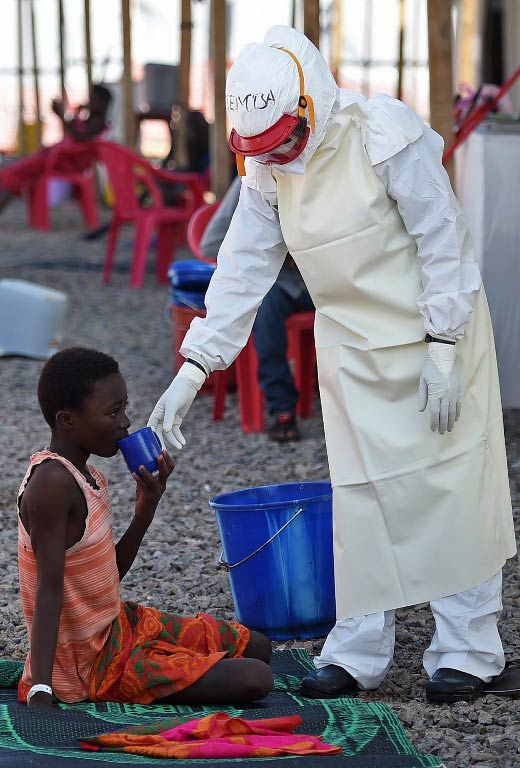
Junior doctors at Sierra Leone’s main hospital went on strike on Monday in protest over inadequate equipment to fight the Ebola epidemic ravaging the impoverished nation.
The action at Freetown’s Connaught Hospital follows the deaths of three doctors in two days, with new figures showing Sierra Leone has overtaken Liberia as the country with the most infections.
“We have decided to withhold our services until proper and more conducive atmosphere is created for us to continue our work,” the Junior Doctors Association said in statement.
The association did not say how many doctors were joining the action, but patients were reporting significant disruptions as senior consultants headed to the wards to cover their work.
One junior told AFP she and her colleagues were “depressed” and “losing courage to turn up for work” because of the lack of equipment.
“We are also worried over the deaths of our colleagues… which is very disheartening,” she said.
The doctors say they don’t have enough respiratory machines and vital signs monitors, and that intensive care facilities are lacking in an Italian-built treatment centre in the west of the city to which some them are due to be sent.
A source at the Junior Doctors Association said the union would meet on Tuesday to decide whether to continue the action.
The World Health Organisation published new figures on Monday showing that Sierra Leone was registering the most cases in west Africa, for the first time, with 7 798 cases compared with Liberia’s 7 719.
Sierra Leone has recorded around 1 742 Ebola deaths this year and has registered a worrying surge recently of cases in its western area, including the capital.
Ten Sierra Leonean doctors have died after contracting Ebola.
Aiah Solomon Konoyima’s death late on Saturday at an Ebola treatment unit in Hastings, near the capital Freetown, came just a day after two of his colleagues were killed by the virus.
Even before the Ebola epidemic spread from Guinea in May, Sierra Leone, one of the world’s poorest countries, was still struggling to rebuild its health services after a decade-long civil war in the 1990s.
In 2010 the nation was estimated to have around one doctor for every 50 000 people – or roughly 120 doctors for the entire country.
The doctors are among more than 300 healthcare workers to have died treating patients infected in the deadly outbreak, which appears to be stabilising in Guinea and Liberia but is still spreading at an alarming rate in Sierra Leone.
The virus is spread through contact with bodily fluids, meaning healthcare workers are particularly at risk, and more than 100 have lost their lives in Sierra Leone.
The outbreak has left more than 6 300 people dead worldwide since December 2013, nearly all in Sierra Leone, Guinea and Liberia.
